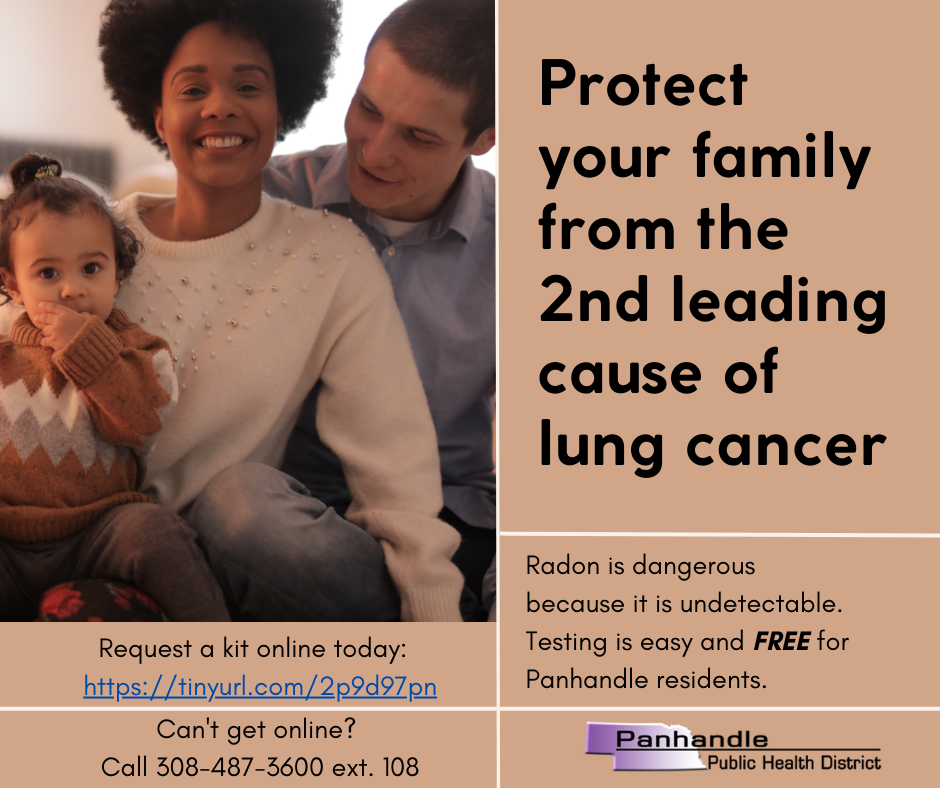![]()
You can’t see, smell or taste radon, but it could be present at a dangerous level in your home. Radon is the leading cause of lung cancer deaths among nonsmokers in America and claims the lives of about 21,000 Americans each year. In fact, the EPA and the U.S. Surgeon General urge all Americans to protect their health by testing their homes, schools and other buildings for radon.
Exposure to radon is a preventable health risk and testing radon levels in your home can help prevent unnecessary exposure. If a high radon level is detected in your home, you can take steps to fix the problem to protect yourself and your family.
Three Things You Can Do During National Radon Action Month
- Test your home – EPA and the U.S. Surgeon General recommend that all homes in the U.S. be tested for radon. Testing is easy and FREE for Panhandle residents by calling 308-487-3600 ext. 108 or completing the FREE Radon Test Kit Request Form: https://tinyurl.com/2p9d97pn
- Spread the word – Help share information on your social media and other groups you may be involved with at church and in the community.
- Spend time during National Radon Action Month encouraging others to learn about radon and test their homes.
- Tell your family and friends about the health risk of radon. Encourage them to test their homes.
- Plan an activity in your community to help raise awareness.
Also, five inexpensive things you can do to minimize radon entry into your home…
- Open the air registers
- Ensure that your return air ducks are completely sealed
- Fill any cracks and openings in your basement floor
- Fill any openings through the first floor
- If you have a sump pit, take steps to make it airtight
Melissa Haas, PPHD Environmental Health Coordinator states, “Radon levels can vary from home to home. In Nebraska, 1 out of every 2 homes tested is high for radon. Your neighbor may have different levels of radon than you and the only way to know is to test. Please reach out to find out more or request a test kit. We are here to help!”
For additional information about worksite wellness, visit www.pphd.org/pwwc.html or call Nicole Berosek at 308-279-3496
The Panhandle Worksite Wellness Council is proudly part of Panhandle Public Health District. The Council specializes in supporting employers in the Panhandle region. We recognize that many employers support a diverse and remote workforce and offer innovative ways to overcome the challenge of working with a virtual team. We understand that many of our employers do not have full-time wellness resources and work to provide resources and training to make running a worksite wellness program as easy as possible.
Panhandle Public Health District is working together to improve the health, safety, and quality of life for all who live, learn, work and play in the Panhandle. Our vision is that we are a healthier and safer Panhandle community.
Source: https://www.epa.gov/radon/national-radon-action-month-information

